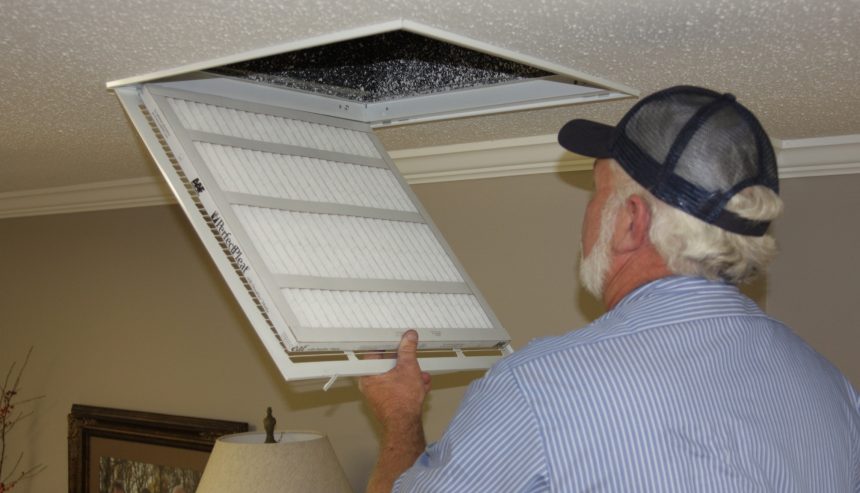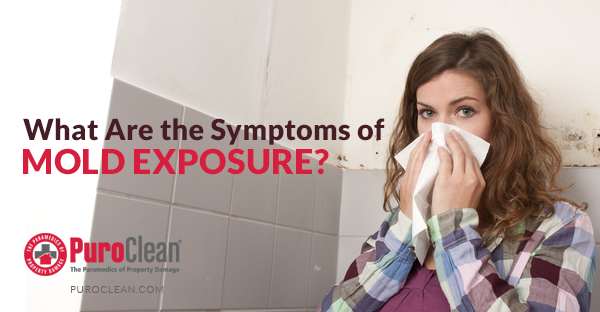Few things are more unsettling than discovering mold inside your home. The musty smell, the potential health effects, and the damage it can cause make it a problem that homeowners want to resolve quickly. Yet many people are surprised to learn that their HVAC system can play a big role in mold growth and spread.
Heating and cooling systems are designed to make homes more comfortable, but when they’re not maintained properly, they can unintentionally create the perfect environment for mold. In this blog, we’ll explore how HVAC mold Alexandria develops, why it matters for homeowners, and what can be done to prevent and solve the issue.
Understanding HVAC and Mold Growth
Heating, ventilation, and air conditioning systems play a central role in regulating temperature, airflow, and humidity. While they’re designed to keep indoor spaces comfortable, these same features can sometimes contribute to mold growth.
Moisture, dust, and organic materials that collect inside ducts or units can create ideal breeding grounds. In many cases, the starting point is HVAC mold Alexandria, which appears when condensation builds up and isn’t drained properly. From there, spores can spread into living areas, leading to bigger problems for households.
Key Causes of Mold in HVAC Systems
Mold doesn’t just appear out of nowhere in HVAC systems; there are specific reasons behind its growth. Understanding these causes not only helps homeowners to recognize risks but also to take preventive steps that are helpful in the long run.
Trapped moisture, clogged filters, and leaks are common culprits, but mold can also originate in other parts of the house. For instance, attic mold in your Alexandria home may go unnoticed at first, but it can eventually affect air circulation and spread into the HVAC system.
Moisture Buildup in Ducts and Units
Condensation is a natural part of cooling, but when water lingers inside ducts or around coils, it can become a breeding ground for mold. Alexandria’s humid climate makes this issue more common, especially in summer when systems run constantly. A clogged drain line can make matters worse.
Poor Ventilation and Airflow Issues
When airflow is restricted, damp air may sit in certain areas of the home instead of circulating properly. This not only reduces comfort but also increases the risk of mold formation. Older systems, often found in Alexandria homes, can be particularly vulnerable to this problem.
Dirty Filters and Lack of Maintenance
Filters trap dust, pollen, and debris, but when they aren’t changed regularly, these particles can accumulate. Combined with moisture, they create the perfect food source for mold spores. Routine filter changes are one of the simplest yet most effective ways to prevent HVAC mold Alexandria cases.
Improper Installation or Sizing of HVAC Systems
When a unit is too large, it cools the air quickly but doesn’t remove enough humidity. When it’s too small, it struggles to maintain consistent airflow. Both scenarios create the conditions that mold needs to grow. This is a common issue in older or renovated homes where systems may not match the property’s size.
How Mold Spreads Through HVAC Systems
Once mold infiltrates a heating and cooling system, it doesn’t stay confined to just one area. The design of these systems allows for air to move from one room to another, and with that airflow, mold spores are easily carried along.
- Distribution Through Ductwork: Every time the system cycles on, it pushes spores through the ducts and into living areas. This is why a musty odor often becomes noticeable only when the system is running.
- Surface Growth Around Vents and Registers: As spores settle, they may take hold around vents, registers, or even on nearby walls. These visible signs often indicate that mold is more widespread inside the system.
- Contamination of Indoor Air Quality: Beyond visible mold, the bigger concern is unseen contamination. Spores circulating indoors can affect air quality and contribute to health problems over time.
Understanding this spread explains why small problems can quickly turn into larger ones. Left unaddressed, it can impact both the air quality and the comfort of the entire home.
Health and Home Impacts of HVAC Mold
Mold in HVAC systems can take a serious toll on health and property. Here are the most common effects:
- Respiratory Issues – Mold spores often cause coughing, allergies, and asthma flare-ups. Children, seniors, and those with breathing conditions are especially vulnerable.
- Lingering Odors – A musty smell is one of the first warning signs. It usually spreads through every room when the system cycles on.
- Property Damage – Mold can discolor and stain walls, ceilings, and furniture, while also damaging HVAC components.
Addressing HVAC mold Alexandria quickly helps protect both the home and the people living in it.
Prevention and Solutions for Mold in HVAC Systems
While mold can cause serious problems, the good news is that prevention and solutions are within reach. With routine maintenance and timely professional help, homeowners can lower risks, keep systems safe, and avoid spending extra money on major repairs later. If you’re worried about mold-related health symptoms, you can read more from the Cleveland Clinic’s guide on black mold.
Regular HVAC Inspections and Maintenance
Professional inspections can catch mold growth in its early stages. Routine maintenance, including coil cleaning and filter replacement, ensures that systems stay clean and efficient.
Controlling Indoor Humidity Levels
Keeping indoor humidity below 50% makes it harder for mold to grow. Homeowners often use dehumidifiers to balance moisture, especially during humid Alexandria summers. This step is one of the best defenses against mold from air conditioning issues.
Proper Cleaning of Air Ducts and Vents
Over time, dust and debris accumulate in air ducts. Professional duct cleaning removes contaminants safely, reducing the risk of mold spreading throughout the home. DIY cleaning may disturb spores, making the problem worse, so expert care is recommended.
Upgrading to Modern HVAC Systems
Newer systems often include advanced humidity control and improved airflow design. Investing in an upgrade may be a long-term solution, especially for homeowners who have struggled with HVAC mold Alexandria repeatedly.
When to Call a Professional for Mold in HVAC Systems
Some mold problems can be prevented with simple steps like filter replacement, but others require professional expertise. Knowing when to call for help ensures mold is handled safely and thoroughly.
Persistent musty odors, visible growth near vents, or recurring health symptoms all point to a deeper issue within the system. Certified technicians not only remove mold but also identify and fix the root causes, ensuring the problem doesn’t return. Addressing mold from air conditioning quickly with expert help protects both the property and the people inside it.
Conclusion
Mold and HVAC systems are more connected than many homeowners realize. Without proper care, a unit designed to provide comfort can instead spread spores throughout the home. The good news is that with inspections, humidity control, and timely upgrades, mold problems can often be prevented. For households already dealing with HVAC mold Alexandria, seeking professional support ensures safe solutions that restore comfort and keep homes healthy.
FAQs
Q1. Can mold from air conditioning make you sick?
A: Yes. Mold spores can aggravate allergies, asthma, and other respiratory issues. Prolonged exposure may lead to chronic health concerns if left untreated. Having a professional evaluate the system is the safest step.
Q2. How do I know if my HVAC system has mold?
A: Signs include musty odors, visible mold near vents, or health symptoms that worsen when the system is running. A professional inspection can confirm if HVAC mold Alexandria is present and identify the source.
Q3. Is professional cleaning necessary for HVAC mold?
A: Yes. While surface cleaning can help temporarily, mold inside ducts or coils requires professional treatment. Experts have the tools and knowledge to remove spores safely and prevent regrowth. Regular checkups can help avoid repeat problems.




 PuroClean of Alexandria
PuroClean of Alexandria